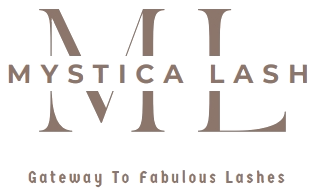Eyelash Extensions
Are Eyelash Extensions Eco-Friendly?
Are Eyelash Extensions Eco-Friendly? Debunking the Myths of Faux Mink Lash Extensions
The beauty industry, like many others, is currently undergoing a significant transformation towards environmental sustainability and ethical practices. This shift isn’t just a trend but a much-needed change in how businesses operate. As the popularity of eyelash extensions continues to soar, questions arise: Are eyelash extensions eco-friendly, especially faux mink lash extensions?
Let’s dive into the world of faux mink eyelash extensions to explore their environmental impact and sustainability.
Understanding Faux Mink Lash Extensions
Faux mink lash extensions are a synthetic alternative to traditional mink lashes, which are sourced from the fur of minks. These extensions are designed to mimic the luxurious and natural appearance of mink lashes without the ethical concerns associated with animal-derived materials.
Faux mink lashes are typically made from a blend of synthetic fibers, such as PBT, or other high-quality materials. They are known for their lightweight, soft, and flexible characteristics, making them a preferred choice for those seeking a more natural look compared to traditional synthetic lashes.
The Environmental Concerns
The eco-friendliness of faux mink eyelash extensions primarily hinges on the production and disposal of these products. Let’s address some common concerns:
- Materials Used: Faux mink lashes are made from synthetic fibers, which are not biodegradable. They are generally made to be durable, which means they can stay for long. This allows lash lovers to enjoy this beauty treatment without using animal-tested makeup on a daily basis or animal-derived eyelash extensions.
- Manufacturing Process: The production of synthetic fibers does have an environmental impact. It requires energy and resources, and the chemicals used in the process can be harmful if not managed properly. However, many manufacturers are increasingly adopting more sustainable production practices and materials.
- Packaging: Another aspect to consider is the packaging of eyelash extensions. Excessive or non-recyclable packaging can contribute to environmental concerns. Consumers can make a difference by choosing brands that prioritize eco-friendly packaging.
- Disposal: Proper disposal of eyelash extensions is crucial. While the lashes themselves may not be biodegradable, but they can be recycled, reducing the overall waste generated.
The Sustainability Perspective
The sustainability of faux mink eyelash extensions largely depends on consumer habits and choices. Here are some steps you can take to make your eyelash extension experience more eco-friendly:
- Choose High-Quality Lashes: Invest in high-quality faux mink lashes that are designedif not biodegradable then those with much faster degradation period. This will minimize the negative environmental affect and material waste.
- Support Sustainable Brands: Look for brands that prioritize sustainable and ethical practices in their manufacturing and packaging.
- Proper Maintenance: Take care of your lash extensions to extend their lifespan. This includes gentle cleaning and avoiding excessive use of mascara or eyeliner.
- Recycling: Research local recycling options for synthetic fibers. Some beauty salons may have programs for collecting and recycling used eyelash extensions.
- Education: Educate yourself about the environmental impact of the beauty products you use and seek alternatives that align with your sustainability goals.
Conclusion
Are eyelash extensions, especially faux mink lash extensions, eco-friendly? The answer lies in a nuanced understanding of their production, usage, and disposal. While they may not be entirely eco-friendly, they are cruelty-free and conscious consumer choices can significantly reduce their environmental impact. By choosing high-quality lashes, supporting sustainable brands, and practicing responsible disposal, you can enjoy the beauty benefits of eyelash extensions while minimizing their environmental footprint. Ultimately, the quest for eco-friendliness in beauty products is a journey that involves both the industry and consumers working together to make more sustainable choices.
